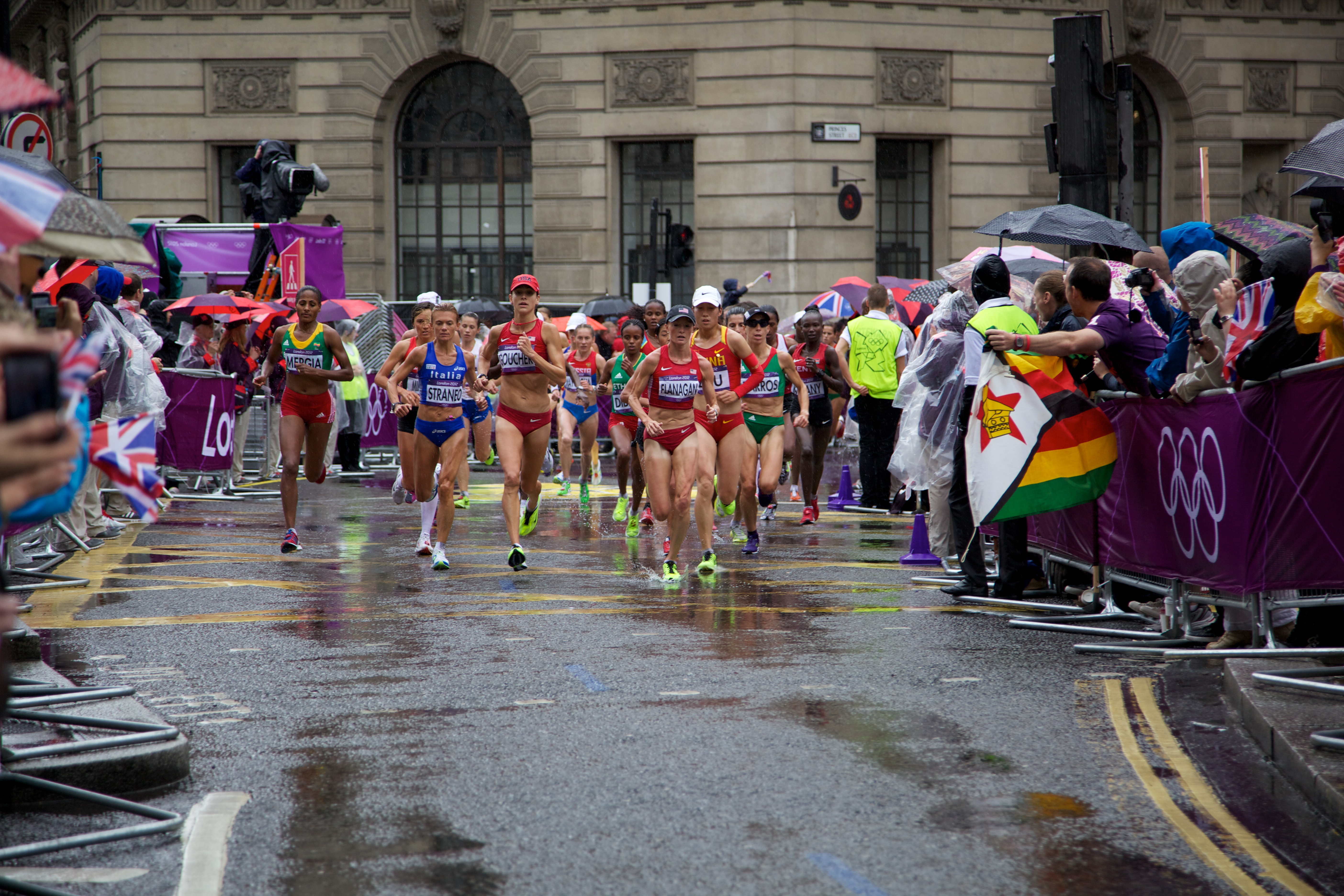
By Aurelien Guichard from London, United Kingdom – Olympics, CC BY-SA 2.0, Link: https://commons.wikimedia.org/w/index.php?curid=20563306
I’m sure you know some marathon runners who are skinny fat, and some who are super lean.
Same thing for triathletes, some are skinny fat and some are super lean.
It’s no accident. All of the lean endurance athletes are training one way, and all of the skinny fat endurance athletes are training completely differently.

What Skinny Fat Endurance Athletes Do
They do moderate to low intensity training all the time.
Like “jogging”. If they bike or swim, then they do the biking or swimming equivalent of jogging.
they start to train for one that’s longer.
In other words, if they survive a 5k, they start training for a 10k. If they manage to limp through a 10k, they start training for a half marathon, if they survive the half marathon, they train for a marathon.
Could be the same thing with triathlons. If they survive a super sprint tri then they start training for a sprint tri. If they survive the sprint, they start training for a standard, then a half ironman, then an ironman.
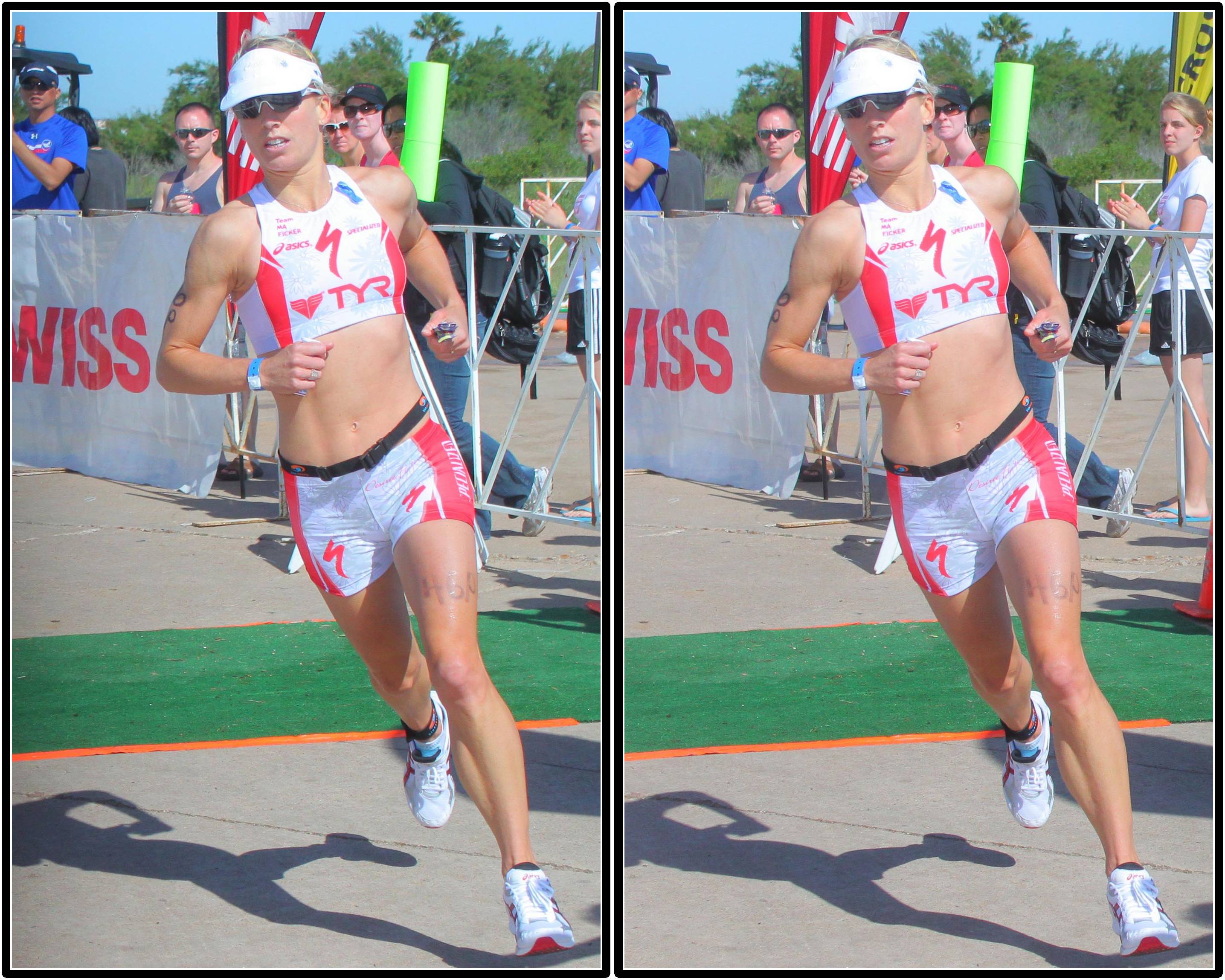
By Fossilmike CC2.0
Link: https://flic.kr/p/7XBo8G

Contrast That With What Super Lean Endurance Athletes Do
Super lean endurance athletes focus on performance.
If they run a distance, they’re training to run that distance again faster.
They have a structured training week hitting different adaptations from long low intensity endurance training, to high intensity speed work, to moderate intensity tempo work. Maybe even hill training, if they run cross country.
Instead of trying to survive distances, super lean endurance athletes are trying to better their performance at distances.
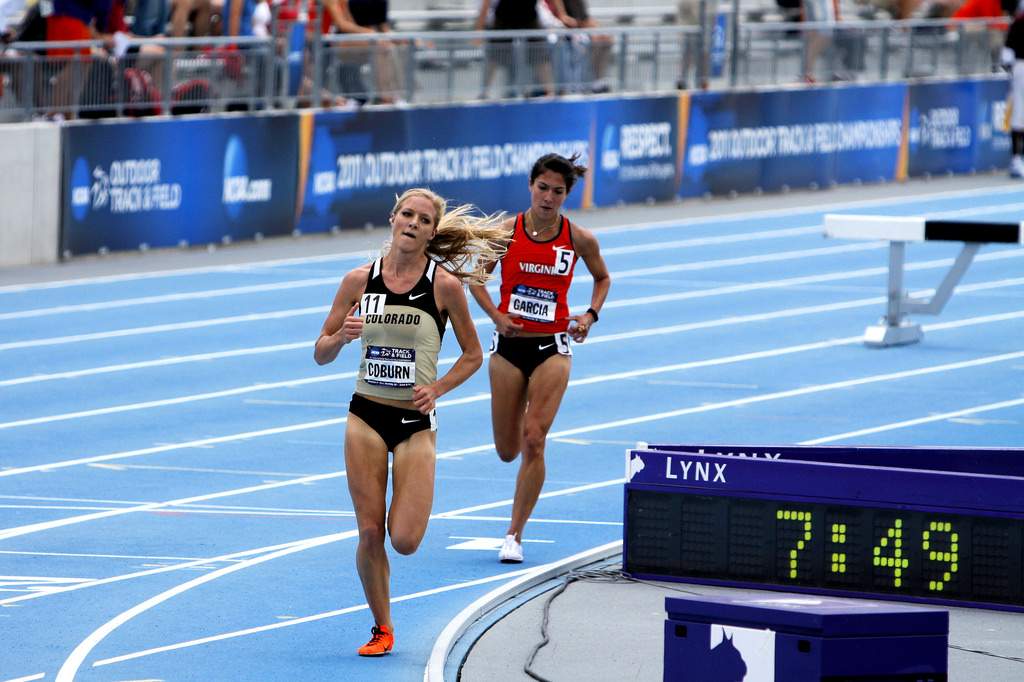
Women’s 3000m Steeplechase – Winner, Emma Coburn of Colorado
by Phil Roeder CC2
Link: https://flic.kr/p/9SxiRp
If You Suck, You’re Going To Be Fat, And Probably Injured
Skinny fat endurance athletes suck.
And then if they live through sucking at one distance, they move up to another distance that they suck at.
If you suck at the 5k, and decide to do a 10k,
you’re just increasing the beating that your body takes.
The hormonal response to sucking is drastically different than the hormonal response to performing at a high capacity.
You’re gonna start running worse. Movement quality will nosedive.
You actually get less and less efficient every race.
This is the path to pain, injury, and fatness.
Stop sucking at longer distances.
It All Comes Down To One Word: Performance
If your focus is performance, your training is going to shift drastically.
If you want to run faster, you’re going to have to do some sort of speed or tempo work.
If you want to swim faster, you’re going to have to work on your stroke. You’re going to have to become a better, more efficient swimmer.
Same can be said for running – if your stride gets more efficient, you’ll run faster.
If you get more powerful and more graceful
at your endurance sport, you’ll be leaner.
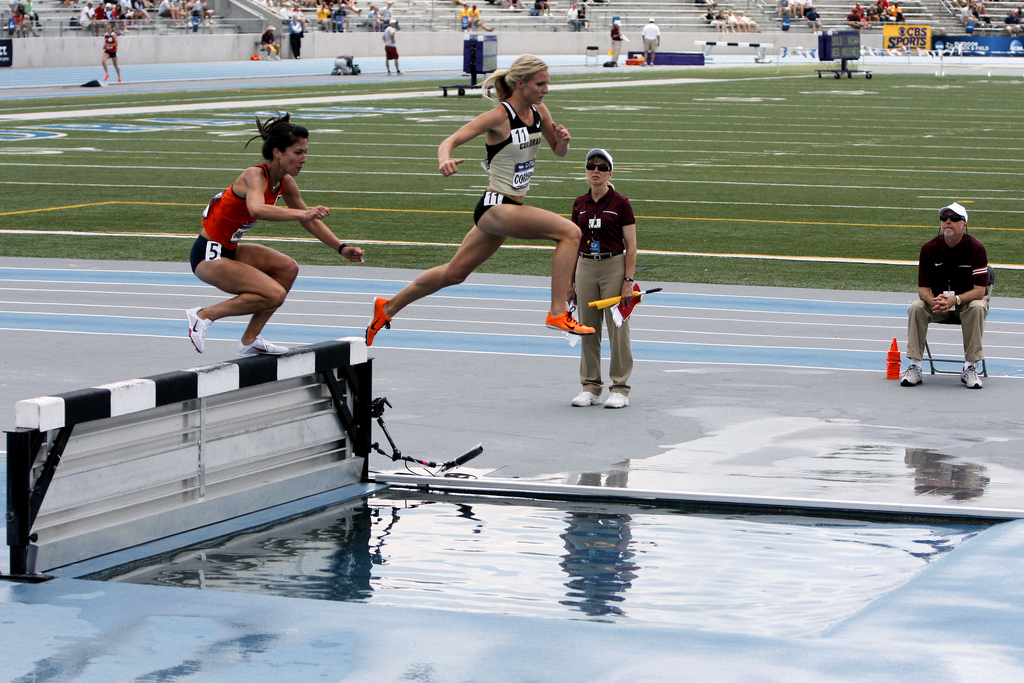
Women’s 3000m Steeplechase – Winner, Emma Coburn of Colorado
by Phil Roeder CC2
https://flic.kr/p/9SAcDf
The Path To Awesomeness: Better Instead of More
Instead of running that 10k, run a faster 5k.
Get a book with a 5k training program, and follow the program.
Better yet, you could even get a running coach.
Eat enough food to support your training, but not enough food to support body fat.
Join a club where the athletes have goals of running faster.
Run a 5k every month. See if you’re getting faster. If you aren’t getting faster, re-evaluate your training program and diet.
I’m using running as an example, but it could just as well be biking or triathlons.
you have to start treating it like a sport.
–•–
Endurance Training and Fat Loss is Simple:
Endurance Race Survivor = Skinny Fat
Endurance Race Competitor = Rockstar Lean
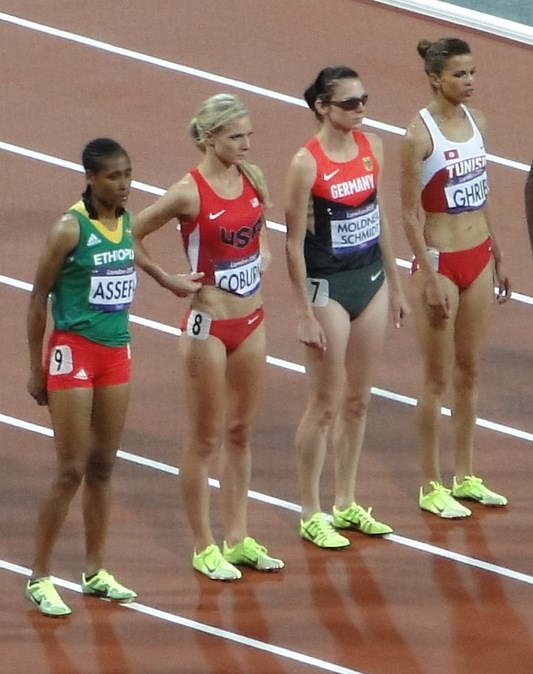
By 3000m2012Olympics_-_Start.JPG: Egghead06derivative work: Sillyfolkboy – This file was derived from3000m2012Olympics – Start.JPG:, CC BY-SA 3.0, https://commons.wikimedia.org/w/index.php?curid=24953038
Food Is the Biggest Piece of the Leanness Puzzle
Ok, so the first 3/4 of this post has been entirely from a training perspective, which is where most clients want to start. It’s also where clients tend to make tons of mistakes, and following the preceding training tenents definitely will make a difference.
That being said, there’s no question that food plays an enormous role in leanness (actually a bigger role than even training).
From a nutritional perspective we always look at the basics:
- Food planning
- Buying mostly whole foods
- Cooking
- Eating slowly
- Paying attention to your stomach’s fullness signals
Basics, basics, basics. People gravitate towards exotic cleanses and elimination diets… but cleanses and elimination diets are the domain of amateurs who struggle with weight forever.
It’s the people who are best at the basics (like planning, shopping, cooking, and eating slowly) who are always the leanest.
We also look at portion sizes. Recommendations for the general population (1/4 plate protein, 1/4 plate carbohydrates, and 1/2 plate vegetables) have to be adjusted for folks who are doing extensive endurance training — usually in the neighborhood of an extra portion of carbohydrates, per day, for every hour of training time.
Where for general population looking for fat loss we recommend not to snack, athletes with multiple training sessions per day, or multiple hour training sessions, will often need a couple snacks to get enough fuel.
As always, you want to keep the main goal the main goal:
- If your number one goal is performance, eat for performance. Sometimes that will mean erring on the side extra fuel, to make sure you have enough for recovery.
- If your number one goal is leanness, eat for leanness. Sometimes that will mean erring on the side of less fuel, to make sure you are getting leaner.
We don’t recommend athletes have a weight loss or leanness goal while they are in season. Performance comes first.
I think eating well is one of the biggest factors as well. Not only will it make you look better but you get the added benefit of feeling good as well! Check out this list of the best and worst foods to eat as far as their toxin and chemical content goes: http://organic-food-blog.com/top-foods-to-avoid-unless-its-organic/